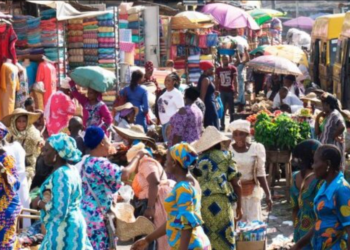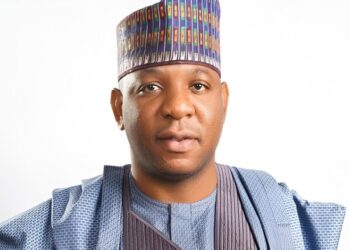The total foreign capital inflows to Nigeria from African investors (excluding Nigerian contributions) accounted for 19.45% of the total capital importation in the second quarter of 2024.
According to an analysis of the latest capital importation data from the National Bureau of Statistics (NBS), Nigeria got $506.68 million from these investors, out of the total $2.60 billion foreign capital.
While this represents an average presence from African investors, it further marks a slight decline compared to the 22.97% observed in Q1 2024.
In contrast, Q2 2023 saw a much smaller contribution from African investors, with their share making up only 15.13% of the total capital importation to Nigeria. This lower percentage in Q2 2023 indicates that regional interest in Nigeria’s investment opportunities was more limited a year ago.
The year-on-year rise from 15.13% in Q2 2023 to 19.45% in Q2 2024 highlights an overall increase in Nigeria’s appeal to other African countries, potentially driven by changes in Nigeria’s economic policies, the emergence of new investment opportunities, or shifts in regional dynamics that made the Nigerian market more attractive over the year.
What does the data say
In Q2 2024, Nigeria saw significant inflows of foreign capital from African countries, totalling $510.31 million.
Excluding Nigerian investors, the total capital importation from other African countries stood at $506.68 million, representing a year-on-year growth of 98.22% compared to $255.56 million in Q2 2023, but a quarter-on-quarter decrease of 34.65% from $775.47 million in Q1 2024.
Two countries account for majority of the foreign capital in Q2 2024: Mauritius and the Republic of South Africa.
Mauritius alone contributed $250.70 million in Q2 2024, up sharply from $17.05 million in Q2 2023, making it the largest African source of capital in the quarter.
The Republic of South Africa followed, with a contribution of $255.98 million, though this was a decrease from $582.34 million in Q1 2024.
Nairametrics further observed that Nigeria’s local investors contributed only $3.63 million in Q2 2024, a slight recovery from a negligible $0.07 million in Q1 2024 but still far below the $99.74 million recorded in Q2 2023.
The drastic year-on-year decline in contributions from Nigerian investors indicates a reduced appetite for reinvestment within the country, possibly due to economic uncertainties or more attractive opportunities outside Nigeria.
Despite the modest increase in Q2 2024, the contribution from Nigerian investors represented just under 1% of the total capital importation from African countries during this period, reflecting a broader shift towards reliance on external African investment sources.
Non-African countries lead in foreign capital into Nigeria
In the broader context of foreign capital inflows from other continents, Nigeria continued to see significant investments from traditional partners.
The United Kingdom remained a dominant player, contributing $1.12 billion in Q2 2024.
However, this was a decrease from $1.81 billion in Q1 2024, indicating a reduction in investment flow.
Similarly, capital importation from the United States totalled $81.58 million, down from $89.27 million in the previous quarter.
This quarter-on-quarter decline in capital from Western countries might suggest a reallocation of investment focus or a strategic pause as investors assess the evolving business environment in Nigeria.
The United Arab Emirates also remained a significant contributor, with capital inflows of $143.44 million in Q2 2024, up from $101.76 million in Q1 2024.
This increase highlights continued interest from Middle Eastern investors, possibly driven by opportunities in sectors such as real estate, infrastructure, and energy.
Other contributors like Hong Kong, which provided $15.47 million, and Germany, with $13.88 million, highlight the diverse sources of foreign investment that continue to shape Nigeria’s economic landscape.
Overall, the year-on-year growth in capital from non-Nigerian African sources demonstrates Nigeria’s attractiveness to regional investors, while the decline in contributions from Nigerian investors signals domestic challenges.
What you should know
Nairametrics earlier reported that Nigeria’s capital importation in the second quarter of 2024 declined by 22.85% from $3.37 billion in the first quarter of the year to $2.60 billion.
However, when compared to the same period of last year, Nigeria’s capital importation rose by 152.8% from $1.03 billion to the current figure.
Also, Nigeria’s Foreign Direct Investment (FDI) for the second quarter of 2024 dropped to $29.83 million, marking the lowest level recorded based on available data up to 2013.
The FDI figure represents a steep decline of 65.33% compared to the $86.03 million recorded in Q2 2023.






















